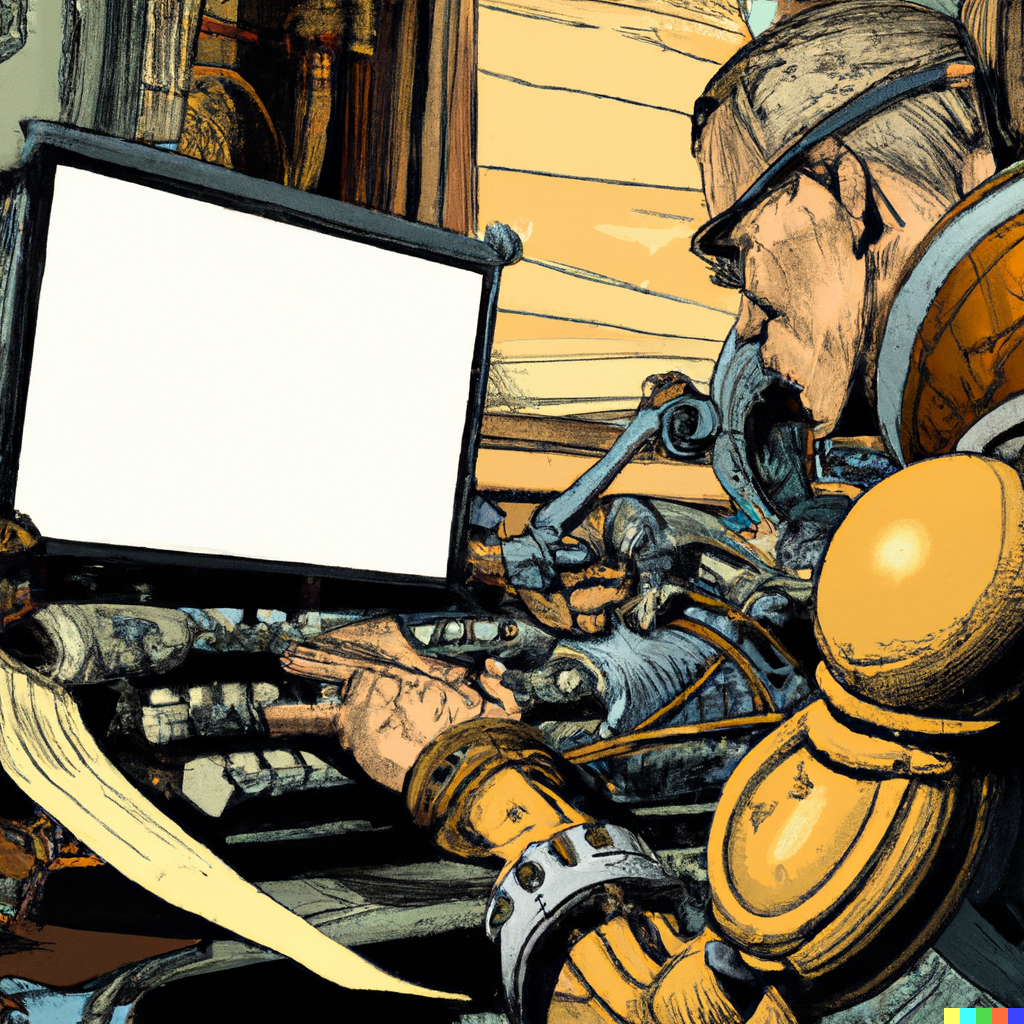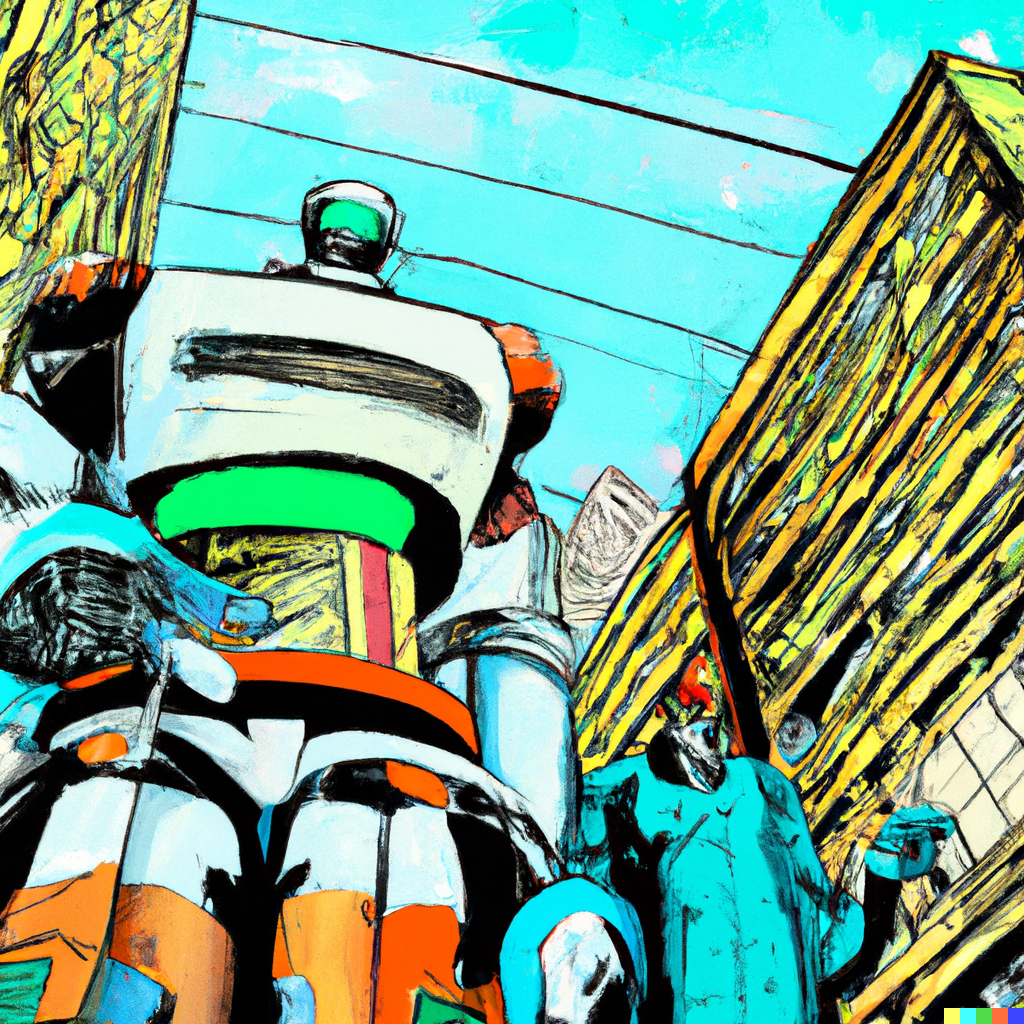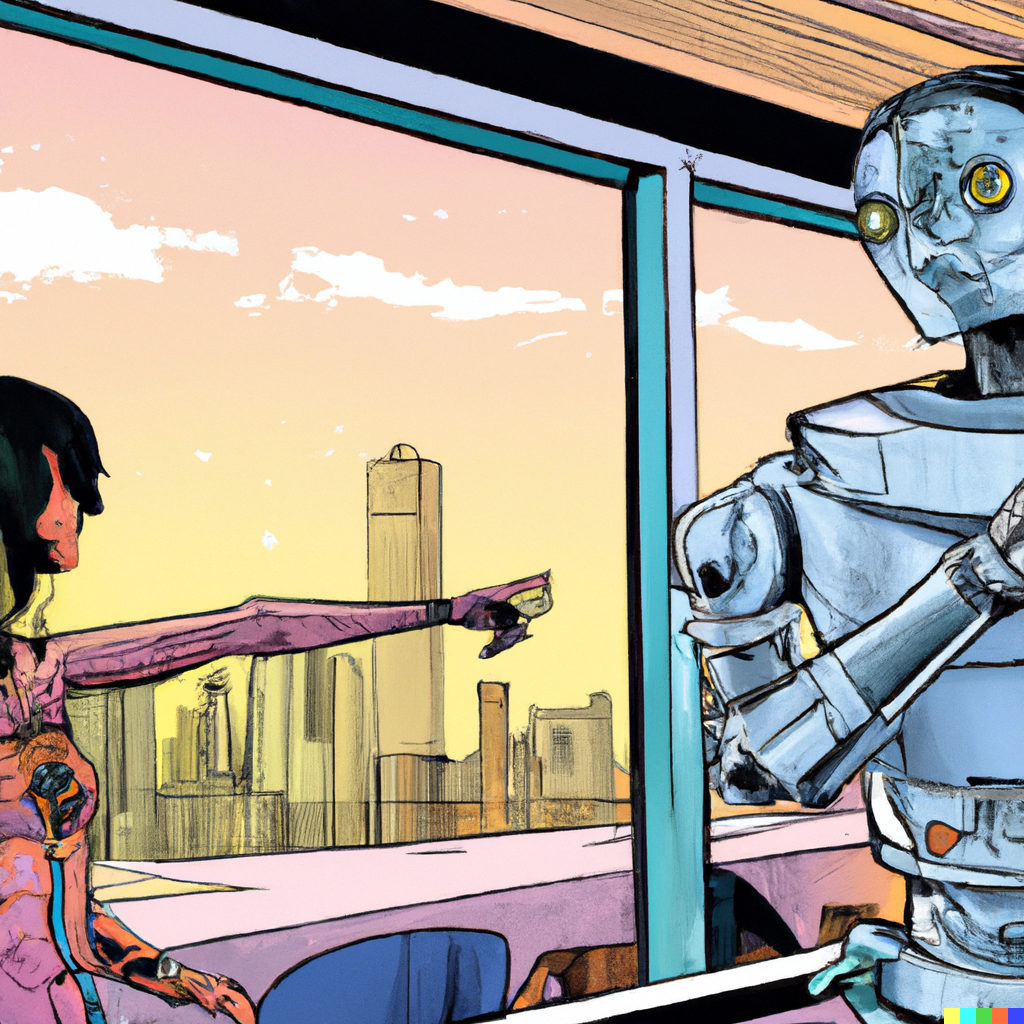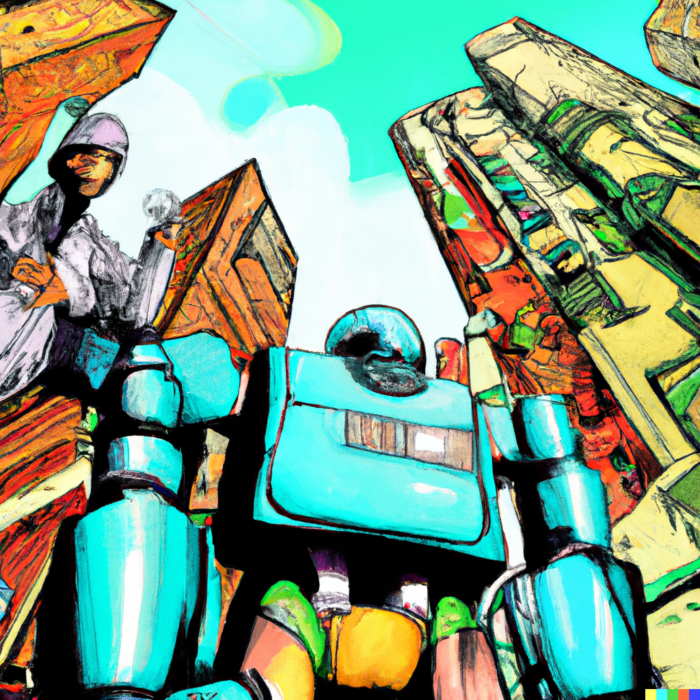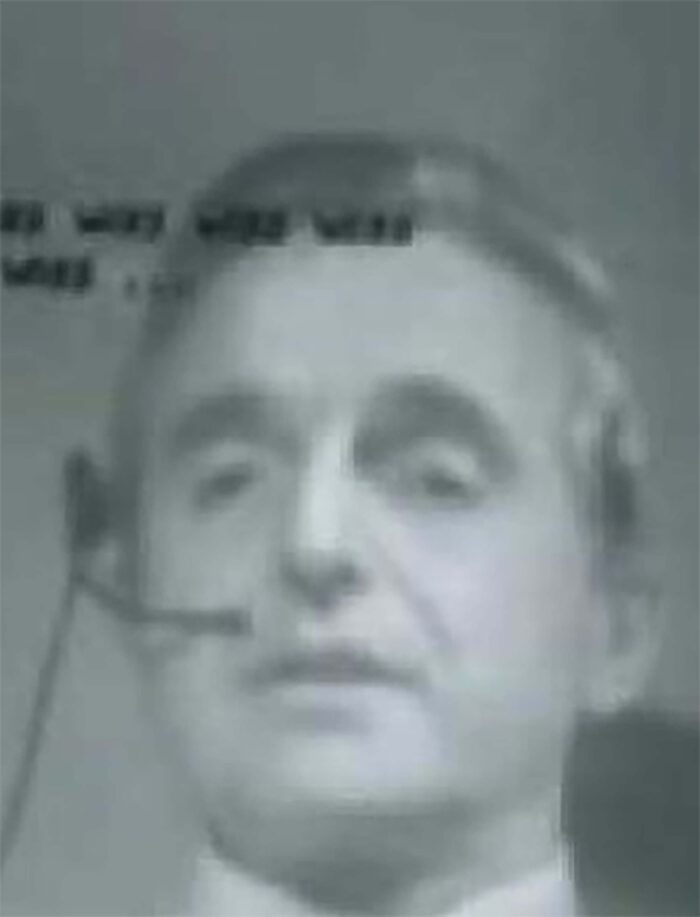Modernity. Before modern time.
Robotermeditation
Können Roboter meditieren? Nein. Auf keinen Fall. Was würden sie denn machen, würden sie meditieren? Aber sie können Go spielen. Manchmal. Und einige von ihnen gewinnen sogar. Wie AlphaGo letztes und dieses Jahr wieder. Und bei Go, da geht es nicht bloß um das spielen. Es geht auch nicht darum, Steine richtig zu setzen. Es geht um die Leere. Und darum, diese zu füllen. Darum auch, es schön zu machen. Mit einem Elan, der Robotern fremd sein müsste. Und das schaffen sie nicht.
Denn Roboter können ja nur das wiederholen, was ihnen die Menschen beibringen. Oder? Folglich können sie auch nicht selbständig denken. Und was würden sie denn während der Meditation machen? Nichts. Sie wüssten gar nicht, was sie damit anfangen sollen. Denn Roboter (ich meine damit auch Software und nicht ausschliesslich die Form der Hardware von der sie umgeben ist), sie sind nur so gut, wie gut sie programmiert sind. Sie können zwar einfache Befehle ausüben, selbst etwas machen, können sie nicht.
Und das wäre doch die Meditation. Es ist eine Versenkung in sich selbst. Die Beschäftigung mit dem eigenen Atem, und der Versuch, eigene Gedanken vorbei ziehen zu lassen, ohne sich ihnen hinzugeben. Meditation, das wäre nach dem Zen ja, hier und jetzt zu sein. Voll und ganz. Gepackt mit Sensoren. Das Gespürte, ja, zu spüren ohne sich allzu viele Gedanken darüber machen zu müssen. Das können Roboter ja. Sie sind. Hier und Jetzt. Einfach nur da. Ohne viele Gedanken. Sie haben Sensoren und können Daten sammeln. Können sehen, spüren, auch riechen. Sie können hören.
Und was ist Go? Eine Meditation ist es nicht. Aber darum geht es jetzt nicht. Die Frage ist, was hat AlphaGo gewinnen lassen. Und warum überhaupt Go? Go ist nicht nur einfach ein altes Spiel das Zuschauer zum Nachdenken einlädt. Es ist auch sehr komplex. Jeder Zug bietet unzählige Möglichkeiten. Deswegen war es viele schwieriger denn im Schach gegen Menschen zu spielen. Bis jetzt. Bis zu dem Zeitpunkt in dem AlphaGo anfing, durchaus menschliche Züge zu spielen. Nicht die effizientesten, aber so gesetzt, dass Lee Sedol aufstehen musste.
Können Roboter meditieren? Ja. Sie machen ja nichts anderes während sie auf deine nächste Bestellung bei AmazonGo warten. Dort spüren sie, was Du kaufen wirst. Noch bevor Du es weisst.
SXSW
Dieses Jahr fand wieder das SXSW Festival in Austin, TX statt. Wir waren nicht dabei. Wir werden kommendes Jahr auch nicht dabei sein. 2019 eventuell auch nicht, vieles hängt aber auch davon ab, wie sich die Seite hier entwickelt. Es kann daher durchaus sein, dass wir nie live vom SXSW Festival berichten werden. Statt dessen werden wir in tiefe Meditation fallen und über die kommende oder statt findende Zukunft nachdenken. Wir wissen es nicht.
Von der Zukunft werden wir aber berichten. Wenn wir alle da sein werden. Dann.
